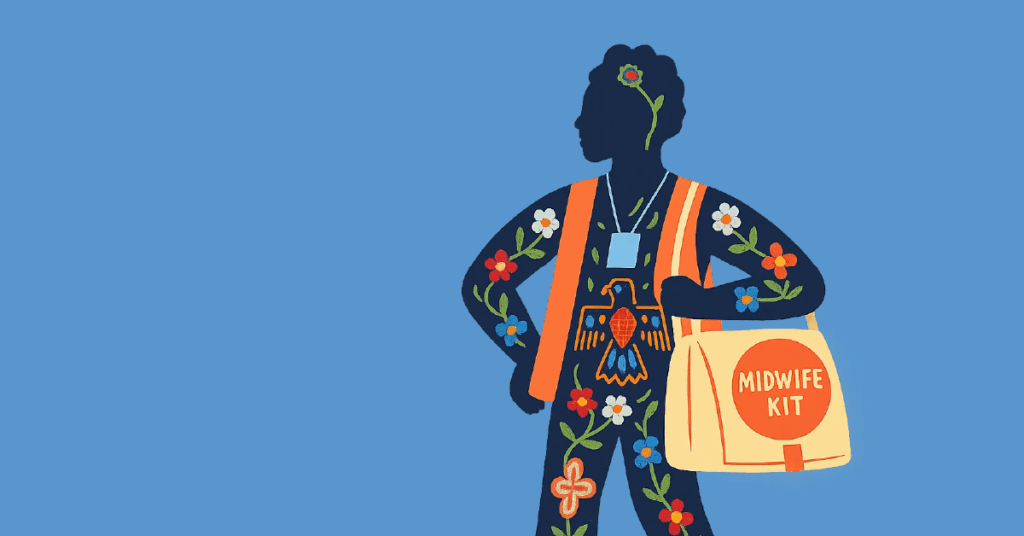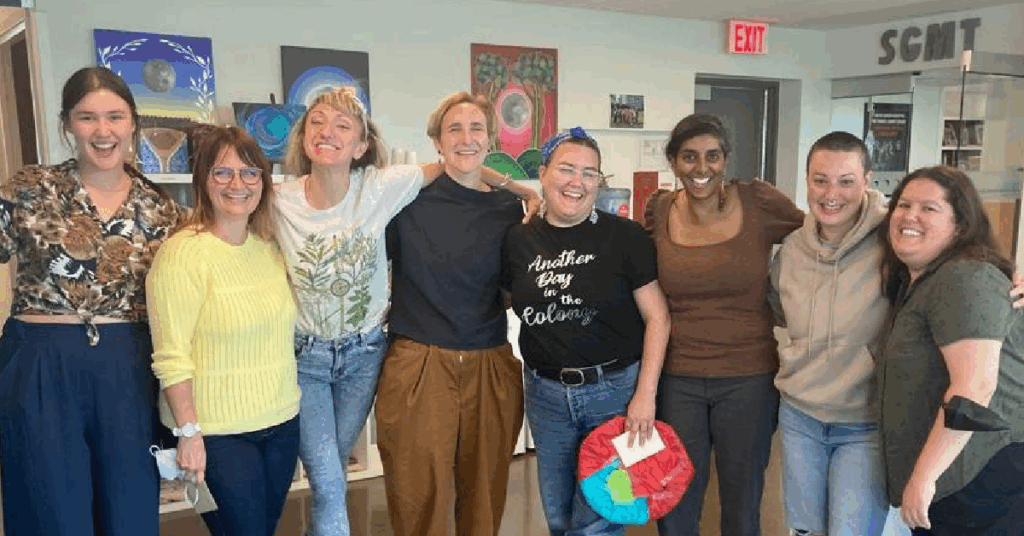Red Dress Day 2025: Indigenous Midwives Urge Canada’s New Government to Deliver on Justice for MMIWG2S+
Only 2 of 231 Calls for Justice Answered Since 2019
On May 5th, Red Dress Day, the National Council of Indigenous Midwives (NCIM) honours the lives of missing and murdered Indigenous women, girls, and 2-spirit people. We stand in mourning, in resistance, and in determination to build a safer future.
In 2019, the National Inquiry into Missing and Murdered Indigenous Women and Girls issued 231 Calls for Justice. Six years later, only two have been fully implemented. Without sustained action, the Calls remain unanswered — and the conditions for violence persist.
The epidemic of MMIWG2S+ was barely mentioned during the recent federal election. As a new federal government begins its mandate, NCIM urges elected leaders to prioritize action on the Calls for Justice — including those that call for the revitalization of Indigenous-led health services. In this pivotal moment for the country, safety for Indigenous women, girls, and 2-spirit people must be part of Canada’s nation-building agenda.
Indigenous Midwifery is Prevention
Indigenous midwives are expert primary health care providers, offering community-rooted, culturally safe, trauma-informed care across the country. Their work directly interrupts the pathways to violence outlined in the Final Report of the National Inquiry: Intergenerational trauma; Social and economic marginalization; Institutional inaction; Denial of agency and expertise.
The Final Report also emphasized that the lack of community-based healthcare, housing, and shelter services forces Indigenous women, girls, and 2-spirit people to leave their communities to access even basic care. This displacement increases vulnerability to violence, exploitation, and trafficking. Among many others, Calls for Justice 3.1, 3.2, and 7.4 call for the revitalization of Indigenous-led health services as a means of restoring safety, self-determination, and connection to community.
For Cheryllee Bourgeois, Métis midwife, Indigenous midwifery is intergenerational community health and healing — not just physical, but emotional and spiritual. Indigenous midwives create a bridge for people who may never have experienced safe, dignified healthcare. “It’s about building trust in people that they are worthy of care,” explains Cheryllee.
Midwives do more than attend births — they provide care that spans pregnancy, postpartum, safety planning, reproductive justice, and healing. Indigenous midwives build trust and provide safety for Indigenous clients in both urban centres and remote and underserved communities.
“Indigenous midwives are at the frontlines of fighting intersecting violence for clients,” says Alisha Julien Reid, Mi’kmaq midwife and NCIM Co-Chair. “Indigenous midwives are prevention – they support health system navigation and intervene in anti-Indigenous racism in healthcare, intimate partner violence and systemic marginalization.”
“We are not just about catching babies. We are nutrition. We are breastfeeding. We are safety in remote areas. We are insurance for our young families.”
— Carol Couchie, NCIM staff and Anishinaabe midwife
Call to Action: Build Safer Futures, Together
We urge the Government of Canada to:
- Recognize Indigenous midwifery as a key response to the Calls for Justice (Calls 3.1, 3.2, 7.4)
- Invest in Indigenous midwifery through community-based education and sustainable funding
- Collaborate with NCIM to implement policies that strengthen Indigenous-led care and protect Indigenous lives. Contact NCIM’s Policy Advisor, Megan Davies at mdavies@indigenousmidwifery.ca
“Indigenous midwives are building trust, wellness, and safety in their communities every day. Despite limited access to resources, they are already doing the work that has been left undone for far too long. Through strengthened collaboration and support from policymakers, we can build safer futures together.”
— Alisha Julien Reid, Mi’kmaq midwife and NCIM Co-Chair
📎 Learn more:
- National Family and Survivors Circle
Crisis and support resources, as well as updates on community engagement and the National Action Plan. Established in response to the Calls for Justice. - Federal Reporting Tool on the Calls for Justice
Government’s own data: 105 Calls remain pending, 115 have been partially actioned, and only 2 are fully completed (5.20 and 5.23). - Background Context
Colonialism and systemic underfunding removed midwifery and reproductive care from Indigenous communities. This has led to forced birth evacuations, preventable health risks, and unacceptable care gaps — especially in rural and remote regions.
About NCIM
The National Council of Indigenous Midwives advocates for the restoration and growth of Indigenous midwifery across Inuit, First Nations, and Métis communities. We represent Indigenous midwives’ expertise to governments and global health bodies, and we offer community education, professional support, and policy leadership.


